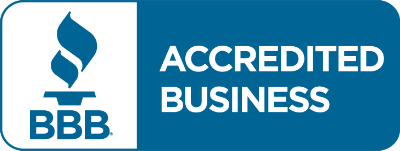The number of seniors under family practice care is growing fast. More families want healthcare that feels personal, familiar, and fits into daily life. At the same time, the need for home-based nursing has never been higher. Seniors are living longer, but with more complex health needs that go far beyond simple check-ups or medicine reminders.
This is where home nursing shines. It doesn’t just help with daily care—it matches the whole-person approach family physicians value so much. Home nurses work as true partners in health, supporting both seniors and family members, right inside their homes. Looking closer, it’s clear that home nursing provides a kind of care most people don’t realize they’re missing.
Understanding Home Nursing Within Family Practice Care
Before you can see the big benefits, you need to know how home nursing fits with family practice. It’s more than assistance with medication or personal care. Home nursing brings skilled medical support into the home and connects tightly with the family doctor’s plan. This approach moves the center of care closer to where it matters most: at home, surrounded by loved ones.
Defining Home Nursing and Its Distinct Role in Senior Care
Home nursing makes it possible for older adults to get skilled medical help without leaving their home. This care goes beyond what a home health aide or personal support worker can provide. Registered nurses can:
- Give wound care and injections
- Monitor vital signs and symptoms
- Manage complex medications
- Teach patients and families about chronic diseases
- Communicate real-time changes to doctors
While aides help with bathing, meals, and housework, nurses manage the medical side with the expertise of a clinic, right at home.
How Family Practice Physicians and Home Nurses Collaborate
Doctors and home nurses talk often about each patient’s needs. Here’s what that teamwork looks like:
- Shared care plans: Doctors and nurses agree on specific health goals.
- Regular reports: Nurses update the doctor on changes, like swelling or confusion.
- Quick adjustments: If a senior’s health shifts, the team can change treatment quickly.
This flow of information means seniors get care that’s flexible and responsive, not delayed by office visits or missed phone tags. At the same time, consistent documentation from this team-based model simplifies family practice medical billing by reducing errors and improving claim accuracy.
Uncovering the Hidden Value: Benefits of Home Nursing for Seniors
Home nursing inside a family practice is good for more than just medical reasons. Look below the surface and you’ll find benefits for health, happiness, and peace of mind.
Improved Health Monitoring and Early Intervention
Some health changes happen quietly—a bit of swelling, a cough, a spell of confusion. Home nurses spot these fast, often before a problem becomes serious. With early attention, infections, medication errors, and small injuries often stay small. This can:
- Cut down emergency room visits
- Avoid long hospital stays
- Prevent health declines that are hard to reverse
For seniors, this means fewer surprises and more time enjoying life at home.
Support for Family Caregivers and Reduced Burden
Caring for a loved one can be joyful, but it’s often stressful and confusing. Home nurses don’t just help seniors—they also guide, teach, and support family members. Here’s what they offer:
- Clear instructions on medication, diet, and daily care
- Tips for lifting, transferring, or changing dressings safely
- Emotional support after difficult days
By sharing knowledge and lending a hand, nurses ease the load for everyone.
Practical Considerations and How to Access Home Nursing
Knowing the value of home nursing is one thing. Getting the right care is another. Here’s how to start.
Choosing the Right Home Nursing Provider
Not all agencies deliver the same quality. Here are tips for finding the best fit:
- Ask your doctor. Family physicians often know which local services are reliable.
- Check credentials. Look for registered nurses with experience in senior care.
- Ask about coordination. The agency should be open to working with your doctor and sharing health updates.
- Review services. Make sure they offer what you need: wound care, education, medication help, etc.
A quick call or meeting can reveal a lot about their communication and adaptability.
Maximizing Communication Between Family, Physician, and Nurse
The real power comes when everyone stays connected. Here’s how to keep care smooth:
- Set up regular check-ins. Use phone calls, shared notes, or digital apps to update each other.
- Keep a simple logbook. Track changes, questions, and medicine schedules to avoid confusion.
- Share changes quickly. Let the team know about hospital visits, new symptoms, or upcoming appointments.
Clear communication helps prevent mistakes and keeps the focus on the senior’s goals.
Conclusion
The hidden value of home nursing for seniors under family practice care is more than convenience. It offers experts who see seniors in their true environment, spot issues early, and provide care that’s just right for each person. Families feel supported, not alone. Doctors stay in the loop and trust that care plans are followed closely.
If you’re thinking about how to care for an aging loved one, don’t overlook home nursing. Bring it up with your family doctor. Ask questions. Talk with local agencies. The right team can bring comfort, safety, and dignity right where it matters most—at home.




